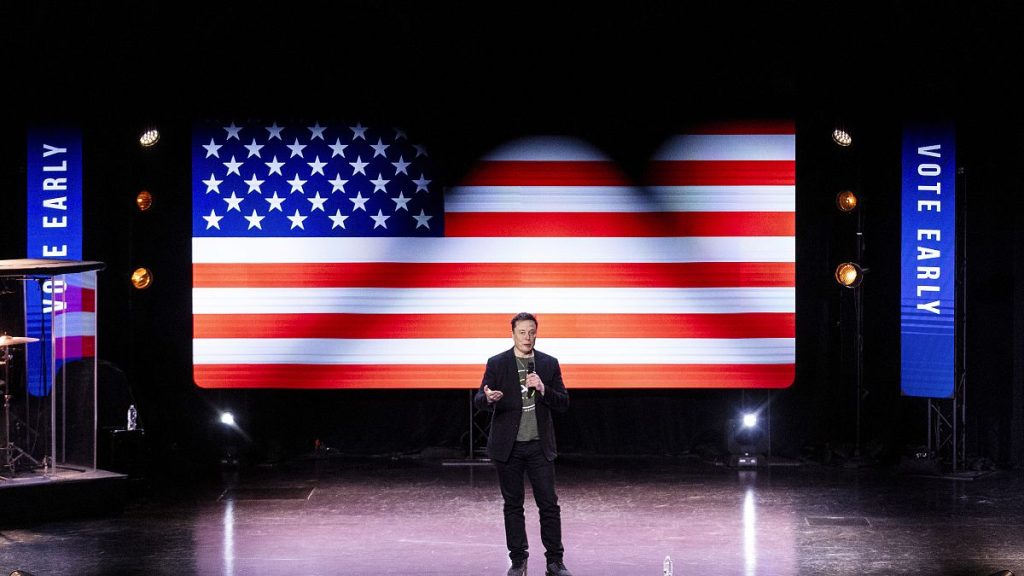Max Tegmark, president of the Future of Life Institute, voiced grave concerns regarding the future of artificial intelligence, particularly artificial general intelligence (AGI). He emphasized that losing control over AGI could precipitate catastrophic consequences for humanity, likening it to walking off a cliff. This perspective stemmed from a recent conversation in Lisbon, where he discussed AI safety standards and geopolitical implications with respect to AI’s evolution. With Elon Musk’s influence on U.S. government policy, specifically under President-elect Donald Trump, Tegmark suggested that there is potential for developing stricter AI safety regulations, contrasting Musk’s proactive stance with the historically anti-regulatory tendencies of the Republican Party. Although Trump expressed intentions to repeal existing regulations from the Biden administration, Tegmark downplayed the impact of such repeals, labeling the measures as inadequate.
Artificial general intelligence is considered the ultimate achievement in AI development, filled with promise and potential peril. Defined as a form of machine intelligence capable of performing any human task without the limitations of specific training, AGI has garnered attention from tech leaders like Sam Altman of OpenAI, who claimed it could significantly elevate humanity. However, Tegmark warned that the race to develop AGI has been distorted with hype, suggesting that many are co-opting the term for promotional purposes. He traced the origin of AGI to the 1950s, where its foundational definition involved AI’s capability to perform any human job and even advance its own development. This focus shifts the conversation from discussing new technologies to contemplating the emergence of a new species altogether.
Tegmark’s insights highlighted the precarious state of AGI development, where many companies are competing in a race that he dubbed more of a “suicide race” than a typical arms race. He pointed out the grave risks involved in this competition among companies, asserting that the stakes are higher than national pride; the potential for humanity’s extinction looms large. His argument framed the need for national safety standards within the United States, driven by the understanding that competing merely on who can achieve AGI first is fundamentally flawed as it ignores the risks of uncontrolled AI proliferation. Tegmark posited that the geopolitical positioning of nations such as the U.S. and China could exacerbate this issue, leading to a scenario where the greatest threat arises not from the competition itself, but from the trivialization of the consequences.
The discussion on AI safety standards extended beyond U.S.-China dynamics. Tegmark advocated for countries to pursue their own safety standards as a means to mitigate risks associated with AI technologies. He envisioned a world where countries, rather than competing against each other, laid down individual safety protocols aimed at curbing AI-related threats. He remained optimistic that if the U.S. and China could establish their respective safety regulations, they would naturally influence their global allies to follow suit. From this perspective, Tegmark foresaw the potential for a constructive relationship among nations that could foster technological innovation geared towards solving pressing global challenges, such as climate change, healthcare, and poverty.
An alarming aspect of Tegmark’s arguments revolved around the rapid pace of AI development and the subsequent pressures this creates on regulatory bodies. He acknowledged the fear of losing vital control mechanisms over AGI and warned against complacency. As generative AI technologies become more integrated into everyday life, Tegmark urged caution, stressing that societal preparedness and regulatory foresight are essential to managing future developments effectively. This proactive approach will be pivotal, ensuring that further progress in AI can be pursued safely while also harnessing its potential benefits for society.
Ultimately, Tegmark’s discourse serves as a clarion call for vigilance in the face of technological advancement. The excitement surrounding AI developments, including glimpses of AGI on the horizon, must be tempered with a sense of responsibility and awareness of the ethical implications inherent in such capabilities. By prioritizing safety standards and fostering dialogue around regulatory frameworks, society can navigate the challenges posed by AI while leveraging its strengths to enrich human life. Instead of racing towards AGI recklessly, the focus must evolve toward collaborative strategies that prioritize both human welfare and the responsible deployment of emerging technologies.














